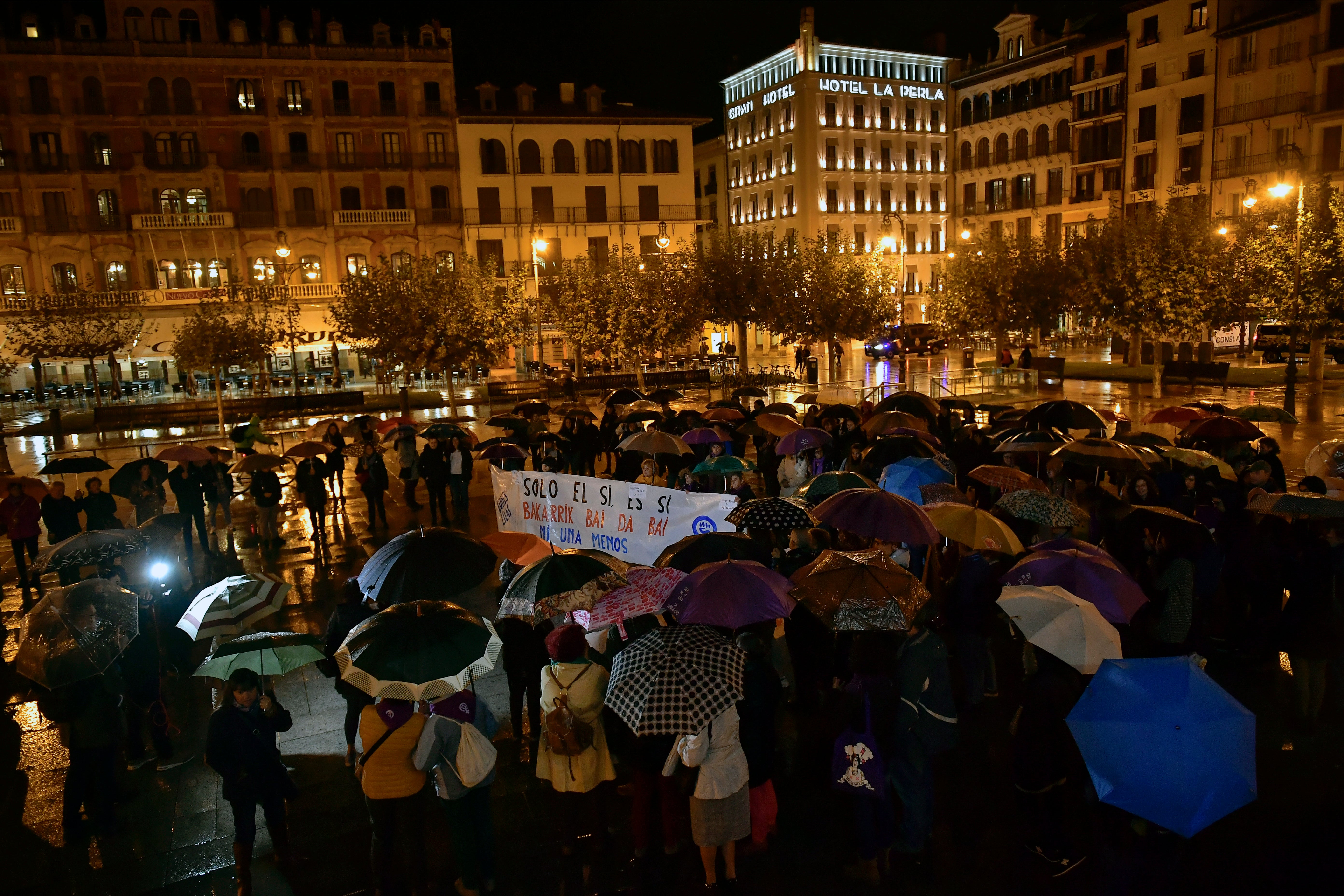Spanish govt endorses clearer, tougher law on sexual consent
Spain’s government has approved sexual consent legislation that aims to crack down on sexual violence and harassment by codifying offenses and adopting new punishments

Your support helps us to tell the story
From reproductive rights to climate change to Big Tech, The Independent is on the ground when the story is developing. Whether it's investigating the financials of Elon Musk's pro-Trump PAC or producing our latest documentary, 'The A Word', which shines a light on the American women fighting for reproductive rights, we know how important it is to parse out the facts from the messaging.
At such a critical moment in US history, we need reporters on the ground. Your donation allows us to keep sending journalists to speak to both sides of the story.
The Independent is trusted by Americans across the entire political spectrum. And unlike many other quality news outlets, we choose not to lock Americans out of our reporting and analysis with paywalls. We believe quality journalism should be available to everyone, paid for by those who can afford it.
Your support makes all the difference.Spain’s government on Tuesday approved sexual consent legislation that aims to crack down on sexual violence and harassment by codifying offenses and adopting new punishments.
The bill endorsed at a Cabinet meeting says: “Consent is recognized only when a person has freely demonstrated it through actions which, in the context of the circumstances of the case, clearly express the person’s will.”
The legislation, popularly known as the “Only yes means yes” law, now goes to parliament for a debate and vote, probably in September.
Government spokesperson María Jesús Montero said the proposed law is “a decisive step forward” in the protection of women, which “makes us, without doubt, better as a society.”
“We have to transform our sexual culture, placing women’s consent at the center of how we see things,” Montero said during a news conference.
The changes contained in the bill follow outcries in recent years over court decisions in sex crime cases.
In 2018, five men were sentenced to nine years in prison each for the lesser crime of sexual abuse in a case that activists saw as a gang rape during the 2016 running of the bulls festival in Pamplona “It’s not abuse, it’s rape!” protesters shouted at the time.
Spain's Supreme Court increased the men’s sentences to 15 years after prosecutors appealed.
Spanish law punishes non-consensual sex but it is not clearly codified and relies on evidence of violence or intimidation to decide whether it a criminal act occurred and if so, the degree of punishment.
The government hopes the bill will remove the need for victims to prove they resisted or were subjected to violence. Any non-consensual sex will be regarded as aggression under the proposal. It sets out punishments that include prison terms of up to 15 years.
The bill also addresses for the first time sexual harassment in the street, identifying it as a minor offense that can be prosecuted on the evidence of the offended person. Convictions would be punishable by voluntary work and fines.
The legislation also would establish nationwide crisis centers for women that are open 24 hours a day year-round.
Women’s rights have been a political banner for Spain's Socialist-led coalition government, which has a mostly female Cabinet.